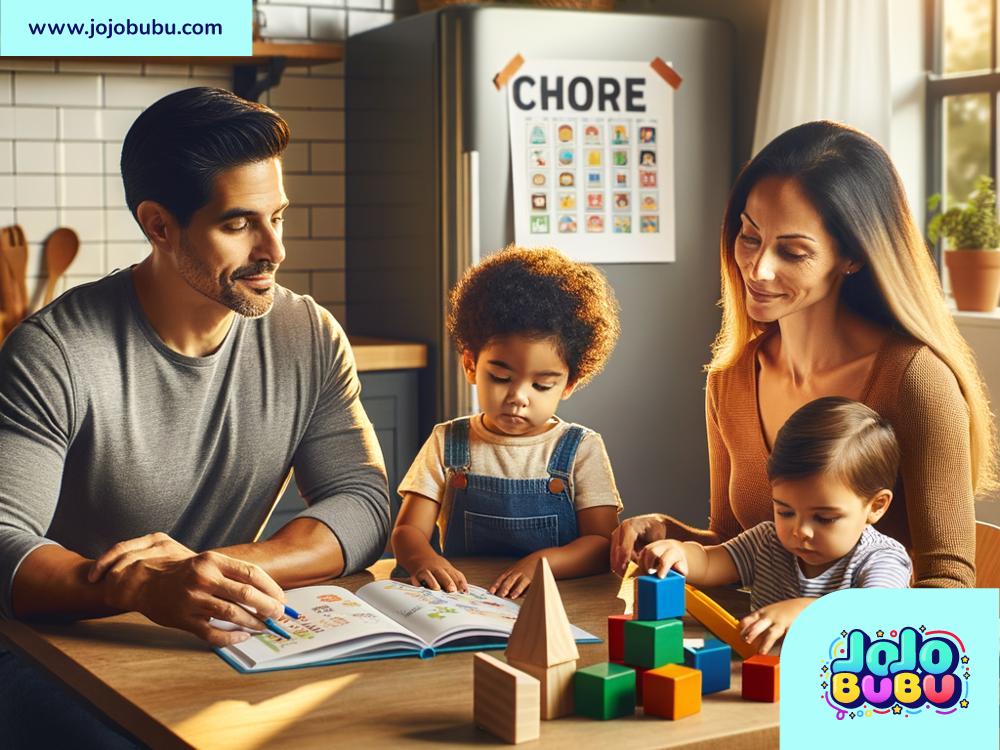Understanding Modern Parenting Approaches
Parenting today looks quite different from how it did a few decades ago. The world has changed, and so have the challenges, tools, and strategies available to parents. With more information, evolving social norms, and a deeper understanding of child psychology, modern parenting approaches aim to help children grow into confident, kind, and capable adults. In this blog, we’ll explore some of the key principles and strategies behind modern parenting in simple terms.
What Is "Modern Parenting"?
Modern parenting refers to approaches and methods that are thoughtful, adaptable, and child-focused. It emphasizes building strong relationships, encouraging open communication, and fostering a sense of emotional security for children. While traditional parenting relied heavily on discipline and authority, modern parenting strikes a balance between guidance and empathy.
Parents today focus on listening to their children, respecting their individuality, and helping them navigate the challenges of a fast-changing world. Modern parenting isn't about being "perfect." Instead, it's about working together as a family to create an environment where everyone feels understood and supported.
Key Principles of Modern Parenting
Let’s break modern parenting down into some clear ideas you can understand and apply.
1. Emotional Connection Is Key
In earlier times, some parents believed that their primary job was to provide food, clothing, and discipline. While those things are still important, modern parenting emphasizes connecting with your child emotionally.
Building emotional bonds helps children feel valued, loved, and secure. When children feel supported, they are more likely to open up about their feelings. This connection allows parents to guide their kids effectively because they feel understood and trusted.
Simple ways to connect emotionally include:
- Spending quality time talking and listening.
- Showing empathy for their struggles, whether big or small.
- Expressing love regularly with kind words, hugs, and encouragement.
2. Encouraging Open Communication
Modern parents aim to create a safe space for open conversations. Instead of shutting a child down with statements like, "You're too young to understand," they involve kids in discussions at a level suitable for their age.
Open communication means:
- Listening to your child’s thoughts and opinions, even if you don’t fully agree.
- Discussing topics like feelings, relationships, and problems in a calm, nonjudgmental way.
- Allowing children to ask questions, even about difficult topics like loss, money, or rules.
When children feel heard, they are less likely to rebel or act out. Open communication also helps them develop confidence and decision-making skills.
3. Positive Discipline
Discipline is still crucial in modern parenting, but it has evolved into a more constructive process. Punishments or harsh consequences are less effective than teaching children why their actions matter and guiding them toward making better choices.
Positive discipline focuses on:
- Teaching, not punishing.
- Setting clear expectations and explaining the reasons behind rules.
- Using logical consequences that help children learn responsibility.
- Rewarding good behavior with praise instead of relying only on criticism.
For example, if a child is consistently forgetting to pick up their toys, instead of scolding them, a parent might say, “It’s important to keep the floor clear so nobody trips over toys. Let’s make cleaning up part of our evening routine.”
By addressing behavior with patience and understanding, children learn self-control and accountability.
4. Flexibility Is Important
Modern parents understand that no two children are alike. What works well for one child may not work for another. Children have unique temperaments, interests, learning styles, and needs, and parenting strategies need to adapt to each child’s situation.
Flexibility also means recognizing that perfection is impossible. It’s okay to make mistakes as a parent; what matters is learning and growing along the way. By staying open-minded and adjusting your parenting approach as your child grows, you can create a dynamic and supportive relationship.
5. Respecting Children’s Individuality
In the past, children were sometimes expected to fit into a mold. Modern parenting takes the opposite approach—it celebrates individuality. Parents now focus on helping children develop their own passions, interests, and sense of self without forcing them to conform unnecessarily.
For example, if a child prefers painting over sports, a modern parent might encourage the hobby and provide opportunities for the child to explore art. This helps children feel confident in who they are.
Respecting individuality also includes acknowledging emotions. Instead of dismissing “bad moods” or “silly fears,” modern parenting helps children process and understand their feelings in a healthy way.
Challenges in Modern Parenting
Parenting in today’s fast-paced world comes with its challenges. Social media, technology, and changing societal pressures can complicate things. Many parents feel overwhelmed by the constant stream of advice and opinions about how to be the “perfect” parent.
At the end of the day, modern parenting is less about competition and more about building a happy, healthy connection within your family. While no approach will suit every family or situation perfectly, staying focused on love, respect, and communication is a solid foundation.
Conclusion
Modern parenting isn’t about reinventing the wheel. It’s about blending some of the timeless values of older parenting styles—like teaching responsibility and offering guidance—with newer priorities: empathy, respect, and adaptability. Every parent’s journey will look a little different, but the ultimate goal is the same—to raise children with the tools they need to thrive in life.
By focusing on connection, communication, and individuality, parents can create a household where their children feel loved, supported, and ready to face the world. Parenting will always have its ups and downs, but with modern approaches, families can navigate them together with compassion and mutual respect.

